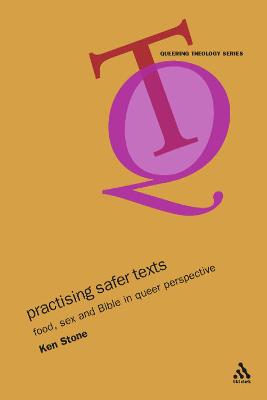Queering Theology Studies
1 total work
This book uses the ubiquitous comparison between food and sex as a framework for examining a number of texts from the Hebrew Bible, as well as later readings of those texts and interpretive issues raised by the texts. A range of biblical texts in which both food and sex appear are analyzed in an interdisciplinary fashion with the help of both traditional tools of biblical scholarship and less traditional tools such as Queer studies and cultural anthropology. By utilizing a reading lens that relates food and sex to one another intentionally, rather than treating them separately, the book will among other things question the tendency of readers of the Bible to overstress the gravity of sexual matters in relation to other matters of potential ethical, theological, exegetical and cultural concern, such as food. At the same time, as the title Practising Safer Texts indicates, the book also proposes a pragmatic approach to biblical interpretation that uses strategies of "safer sex" as a sort of loose model.
Such an approach assesses texts and readings of the Bible not in a universalizing fashion but rather in terms of their likely effects, for good or ill, on particular readers in particular contexts and situations (just as notions of "safer sex" ask us to assess sexual acts not in a moralizing fashion but, rather, in terms of their likely effects on particular persons.
Such an approach assesses texts and readings of the Bible not in a universalizing fashion but rather in terms of their likely effects, for good or ill, on particular readers in particular contexts and situations (just as notions of "safer sex" ask us to assess sexual acts not in a moralizing fashion but, rather, in terms of their likely effects on particular persons.
